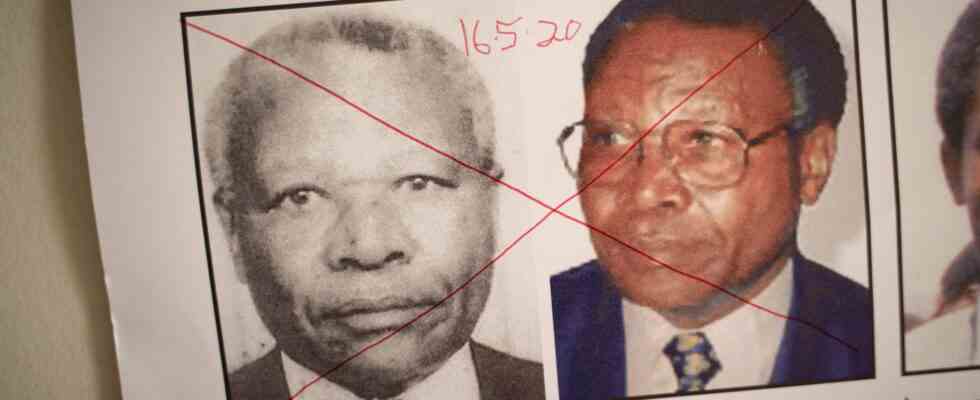Status: 09/29/2022 04:05 a.m
He was one of the most wanted suspected masterminds of the Rwandan genocide: Now Félicien Kabuga has to answer before the UN war crimes tribunal in the Netherlands. The evidence is complicated.
Gilbert Masengo is still sad almost 30 years after the crime. In 1994, Hutu militias killed his mother, brothers and sister, the Rwandan tells in the Netflix documentary series “World’s Most Wanted”. Even children were dismembered with machetes or burned alive, and dogs later ate the body parts.
The United Nations estimates that at least 800,000 people were killed at that time – mostly belonging to the Tutsi ethnic group, but also to opposition Hutu. Documents show that the machetes, which were ultimately used as death weapons, were brought into the country by one man: Félicien Kabuga, a wealthy businessman and a former confidant of then-Rwandan President Juvénal Habyarimana.
Kabuga is considered the “financier of the genocide”
Kabuga is said not only to have provided the murderous Hutu militias of Interahamwe with money and uniforms, he was also a co-founder of the Mille Collines radio station. There, moderators read out lists of names and whereabouts of Tutsi who were to be killed. They were labeled “cockroaches” and dehumanized. It earned Kabuga a reputation as the “financier of genocide”.
To this day, he dismisses the allegations as “lies”. The 89-year-old now has to answer before the UN war crimes tribunal in The Hague. He is accused of genocide as well as genocide conspiracy and complicity.
The evidence is overwhelming, says Filip Reyntjens, emeritus political scientist at the University of Antwerpagesschau.de. But: “The prosecution’s problem will be to prove that Kabuga was directly involved in the Rwandan genocide.”
Kabuga has not been charged with importing hundreds of thousands of machetes. Rwanda is a country where the majority of people live from agriculture. “The prosecutors could not prove that the machetes were imported and issued at the time to kill people,” explains Reyntjens.
26 years escape
With his wealth, Kabuga established connections with the powerful inside and outside of Rwanda. After the end of the genocide in July 1994, he first fled to Switzerland, for which he already had a visa. After his deportation, the investigators hunted him for 26 years, the trail led either to Kenya, Cameroon, Germany and finally to France.
On May 16, 2020, the French authorities arrested Kabuga in Asnières-sur-Seine near Paris. The visibly gray man is now in a wheelchair. Despite his ailing health, the UN court ruled in June of this year that he was able to stand trial.
A trial for the history books
Political scientist Reyntjens estimates that it could be a mammoth process. 40 hours are allotted for questioning the witnesses alone, some of which are connected via video.
He believes that the process in The Hague is hardly followed by many in Rwandan society. “Of course, the process is important for survivors and the families of the dead. But even more so for the political regime in Rwanda,” he says.
Former rebel leader Paul Kagame has ruled the country since 2000, before that he was vice president and secretary of defense. The reconciliation process itself has been sluggish to this day, and the official courts are overwhelmed by the sheer number of perpetrators. The trial before the UN court could therefore be used politically by the Rwandan leadership.
It is clear that even a comparatively mild sentence of a few years in prison would amount to life imprisonment for 89-year-old Félicien Kabuga. “The process is particularly important from a historical perspective because there is hope that it will give us a better understanding of the mechanisms involved in genocide,” says Reyntjens. A revision is never too late.
And that has taken on a whole new meaning, says the political scientist, given the allegations against Russia of committing war crimes in Ukraine.
Genocide in Rwanda – Kabuga in court in The Hague
Birgit Raddatz, HR , 29.9.2022 4:05 a.m

